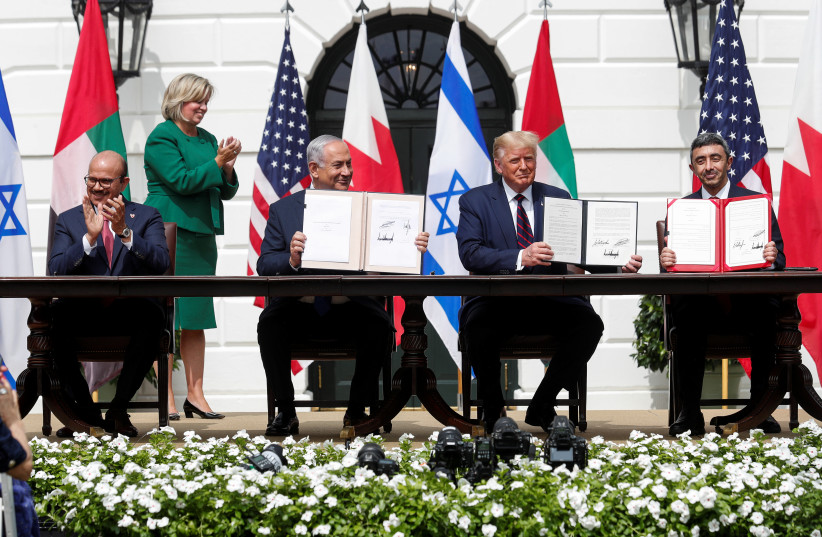The Abraham Accords states worked together as a group at the UN for the first time on Wednesday, garnering support at the Human Rights Council for a statement promoting women’s involvement in peace and diplomacy.
The statement by Israel, the United Arab Emirates, Bahrain and Morocco was presented by Bahrain’s Ambassador to UN Institutions in Geneva Yousef Abdulkarim Bucheeri. The timing was chosen to mark a year since the first three states signed the Abraham Accords.
“The integration of women in the peace processes and in all discussions relevant to promote peace around the globe has a significant value and importance,” Bucheeri said. “Although the contribution of women to peace-building is increasingly recognized, the role of women in preventive diplomacy has so far been quite limited. We need to have women’s voices influencing an agenda for human rights, sustainable development, security and peace.”

The Abraham Accord states called on UN member states to commit to giving “women a seat at every table” so they can contribute to finding solutions and resolving conflicts.
“We are committed to taking into account the experiences of women and girls, both living in conflict zones but also in peace and stability, and to always include a gender perspective, recognizing the unique impact different situations may have on women and girls,” Bucheeri stated.
The statement was supported by 52 states and the UN’s University for Peace.
“The emphasis on the integration of women in peace processes is important and shows the new dynamic that we want to promote in our region and beyond it,” said Israeli Ambassador to UN Institutions in Geneva Meirav Eilon Shaha.
Morocco’s Ambassador to the UN in Geneva, Omar Zniber, said the joint statement shows the countries will to actively work together to build peace and security.
